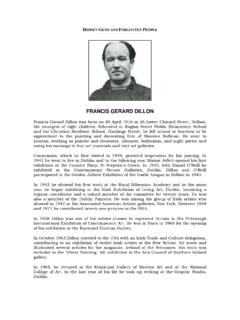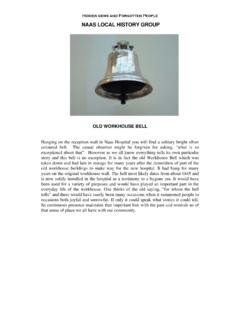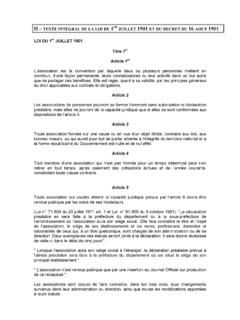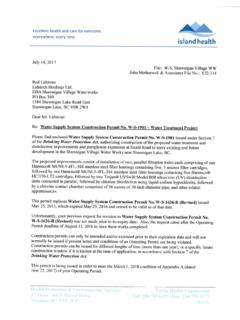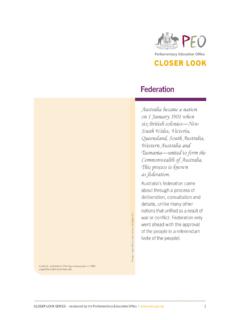Transcription of RICHARD VALENTINE WILLIAMS (RICHARD ROWLEY) (1834 …
1 HIDDEN GEMS AND FORGOTTEN PEOPLE RICHARD VALENTINE WILLIAMS ( RICHARD ROWLEY) (1834-1901) Poet and Playwright RICHARD VALENTINE WILLIAMS , who wrote poetry, plays and stories under the pen-name of RICHARD Rowley, was born in Dublin Road, Belfast. As a young man he entered the family firm, McBride and WILLIAMS , which in a linen town manufactured cotton handkerchiefs; in due course he became its managing director. After the firm's collapse in 1931 he was Chairman of the Northern Ireland Assistance Board. In the meantime he had earned a reputation as a poet. His early poems, in The City of Refuge (1917), were somewhat rhetorical celebrations of industry; but his next volume, City Songs and Others, includes his most quoted poem The Islandmen: "Terrible as an army with banners,/Through the dusk of a winter's eve,/Over the bridge/The thousands tramp." More importantly perhaps, it also had some of those Browning-like monologues put in the mouths of Belfast working-class people (The Stitcher, Oul Jane) as well as the folksier utterances of the farming folk of Mourne, such as Reticence and Thinkin' Long - Rowley had by now moved to Newcastle, Co Down - which are arguably his best work.
2 He also wrote short stories - Tales of Mourne, 1937 - and at least one highly successful play, Apollo In Mourne (1926), in which the Greek god, banished from Olympus, comes to earth in the Mourne country, to devastating effect. In his final years he was working on a series of Bardic Tales, based on Celtic mythology, which, though impressive, have never been published. During the Second World War Rowley founded, and ran from his Newcastle home, the short-lived Mourne Press. He died at Drumilly, Co Armagh, in 1947. Patrick Devlin




